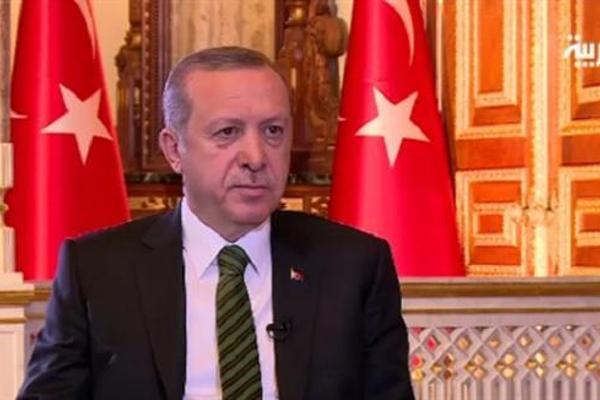Turkey rejected joining anti-ISIL quartet in Baghdad due to Assad, says Erdoğan
ISTANBUL


Still image from an interview with Saudi Arabia’s Al Arabiya on Dec. 26, 2015.
Turkish President Recep Tayyip Erdoğan has said he rejected joining a quartet to combat the Islamic State of Iraq and the Levant (ISIL) consisting of Syria, Iran, Iraq and Russia in Baghdad due to the presence of Syrian President Bashar al-Assad.“Syria, Iran, Iraq and Russia formed a quartet alliance in Baghdad and asked Turkey to join, but I told [Russian] President [Vladimir] Putin that I cannot sit alongside a president whose legitimacy is in doubt,” said Erdoğan in an interview with Saudi Arabia’s Al Arabiya on Dec. 26, days before a visit to the country.
Erdoğan said the offer to join the quartet alliance had come before relations between Turkey and Russia disintegrated because the former downed a Russian warplane citing an airspace violation on its border with Syria on Nov. 24.
Commenting on the crisis with Iraq, Erdoğan said Turkish forces currently training Iraqis in the Bashiqa Camp near the Islamic State of Iraq and the Levant (ISIL)-held city of Mosul had come at the request and with the knowledge of Iraqi authorities, in contrast to Iraqi government claims.
“Iraqi-Turkish relations are good. We tackled developments in Iraq during [Iraqi Prime Minister] Haidar al-Abadi’s visit to Turkey,” Erdoğan said.
“When ISIL entered Iraq, the Iraqis asked for our help and we told them we were ready. We asked them to assign a suitable site to set up our base and so they did. It all began at the end of last year, and in March, we were allocated the Bashiqa area,” he said. “The Iraqi defense minister visited the training camp, but it seems that the developments in Syria have affected the situation in Iraq.”
Erdoğan also demanded that countries in the region come together to address sectarian plots in the Middle East to divide the region. He said there were “disagreements” between Turkey and Iran over regional issues.
“There are disagreements between Turkey and Iran, but I do not want these disparities to affect good neighborly relations ... sectarianism should not prompt us to become enemies; Islam must be our reference,” Erdoğan said.
“There are intentions in the world to divide us and we need to join our efforts and come together. Look at what is happening in Iraq, Syria, Palestine and Libya ... we have to overcome these problems and if we manage to do so, the Islamic world will be more powerful,” he added.
